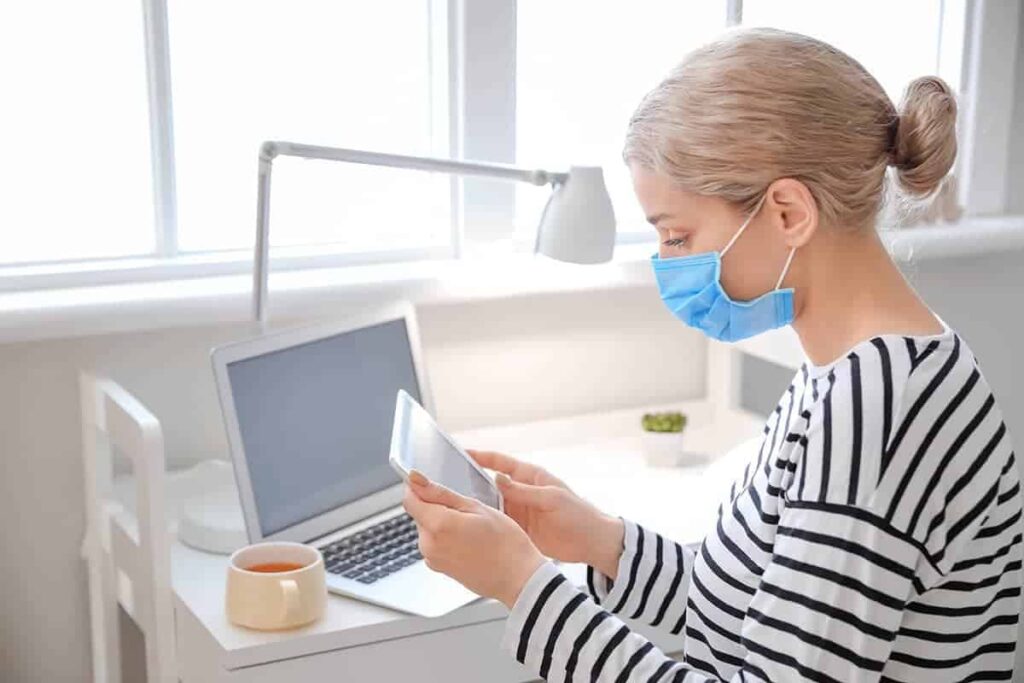Telehealth has been around for some time and has proven to be a safe and cost-effective way to treat patients who do not require a hands-on examination. The use of telemedicine increased by 18% in the last two years and can be used to provide treatment for a wide variety of mental and physical health problems when used correctly.
Many large insurance companies have contracted with telemedicine services to provide basic health care and mental health treatment at a fraction of the costs. Given the advances in technology, including platforms like pMD, that are easy for doctors to set-up and patients to use, mental health care can often be done remotely.
The pandemic has changed many aspects of day to day lives, and it has increased the demand for mental health services. The increase in the need for services comes at a time when it is more complicated than ever to access services because of social distancing. pMD removes many barriers in receiving mental health care, stress management, medication management, and improving coping mechanisms.
How secure is telemedicine?
Many patients are concerned that using telemedicine may change their HIPAA rights, but you have the same rights to medical privacy whether you visit your provider in person, via telephone, or over the internet. HIPAA compliance means that health-care providers can only share personal health information for narrowly defined purposes.
Insurance providers have a right to review your medical information, and you can allow the sharing of health information between health care providers to ensure the continuity of care. You are also given the option to share your health information with a spouse, family member, or anyone you want to have access to the information.
Kimberley Arcara, a board-certified Psychiatric and Mental Health Nurse Practitioner, and owner of Arcara Personalized Psychiatry uses pMD to treat patients and feels confident in the safety and compliance of the platform. According to Kimberley, “The HIPAA compliant Telehealth component has allowed our current patients to keep their appointments or make new appointments with their provider during the COVID-19 pandemic. We have received positive feedback from our patients for its ease of use and HIPAA texting feature that allows direct access to our office and providers”.
To operate as an approved Telemedicine platform, HIPAA compliance safeguards must be in place that assures that patient privacy is protected. If you have any questions about HIPAA, be sure to ask your provider’s office to address any concerns that you might have.
The impact of the COVID-19 pandemic on mental health care
Currently, more than half of all nurse practitioners are using Telehealth to treat patients. Social distancing guidelines and restrictions in some areas proved to be a challenge in meeting the demand for mental health care. pMD has played a vital role in allowing mental health care providers to continue to treat patients, uninterrupted, throughout this pandemic.
A change in federal guidelines to waive the restrictive barriers that undermine patients’ access to Nurse Practitioner provided care. Providing Nurse Practitioners the opportunity to treat new patients via Telemedicine has allowed many who would have been unable to access new mental health care the opportunity to do so. According to Kimberley, “With the federally lifted guidelines during this crisis, we have also been able to treat new patients via Telehealth which previously was not available. Before the pandemic, federal guidelines of Telehealth were only allowed for established patients. Lifting this restriction has created wide access to care for many people suffering from mental health issues.”
The pandemic has caused stress, sleep issues, and anxiety for a large portion of the population. Those things can cause new mental health issues or exacerbate existing issues. There has long been an unfortunate stigma attached to mental health issues, which is too often a barrier to retrieving the appropriate treatment.
Using telemedicine for mental health treatment makes it easier for many patients to reach out for treatment for the first time. Accessibility to appropriate treatment has been a barrier to proper mental health treatment even before the pandemic. The change in practice patterns, and how Nurse Practitioners deliver care, is a positive step in making mental health care accessible to all members of society.
Once the pandemic is over, telemedicine will remain an essential tool in mental health treatment. It not only removes barriers that exist because of the pandemic, but other obstacles such as transportation, or psychological or physical health issues that make it difficult for patients to travel to and from doctors’ appointments.
Kimberley Arcara hopes that the pandemic will serve to open new pathways to treatment that will outlive the COVID-19 pandemic. Kimberley Arcara states that “With the federally lifted guidelines during this crisis, we have also been able to treat new patients via telehealth which previously was not available. Before the pandemic, federal guidelines of telehealth were only allowed for established patients. Lifting this restriction has created wide access to care for many people suffering from mental health issues.”



